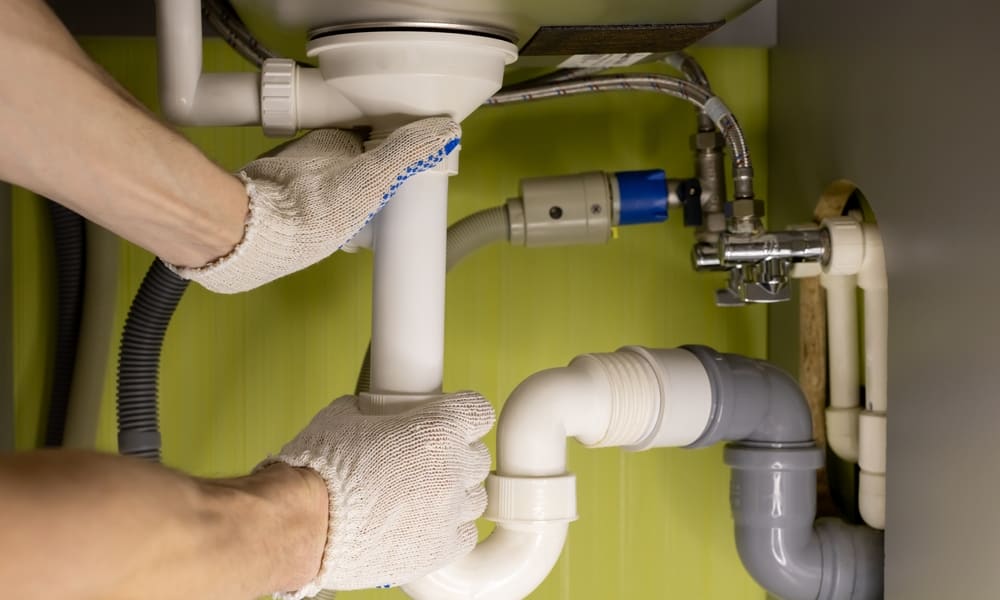Comprehensive Guide to Water Heater Services: Maintenance, Repair, and Operational Considerations
Water heaters are essential household appliances, providing consistent hot water for daily needs. To ensure their longevity and efficiency, proper maintenance, timely repairs, and adherence to operational guidelines are crucial. This article explores key aspects of water heater services from a neutral perspective, covering routine care, replacement procedures, troubleshooting, and safety measures.

Understanding Water Heater Types and Their Maintenance Needs
Water heaters come in several varieties, each with specific maintenance requirements. Traditional tank water heaters store and heat a reservoir of water constantly, while tankless models heat water on demand. Heat pump water heaters use electricity to move heat rather than generate it directly. Regardless of type, all water heaters benefit from regular maintenance to prevent mineral buildup, corrosion, and component failure. Annual maintenance by a qualified water heater plumber typically includes checking the pressure relief valve, inspecting the anode rod, flushing the tank to remove sediment, and examining connections for leaks. These preventative measures can significantly extend your unit’s lifespan and maintain efficiency.
Common Signs You Need Water Heater Repair
Recognizing early warning signs can help you address issues before they become costly emergencies. Indicators that you need water heater repair include inconsistent water temperature, unusual noises (popping, rumbling, or banging), cloudy or rusty water, water taking longer to heat, visible leaks around the unit, or the water heater’s age exceeding 10-15 years. Strange odors from hot water taps might indicate bacterial growth inside the tank. If your energy bills have unexpectedly increased without changes in usage patterns, your water heater may be operating inefficiently due to component failure or sediment buildup. Addressing these issues promptly with professional water heater repair can prevent more extensive damage.
Choosing Between DIY Fixes and Professional Electric Repair
While some water heater issues can be resolved through DIY approaches, others require professional electric repair services. Homeowners can safely perform basic maintenance tasks such as adjusting the temperature setting, inspecting accessible components, or flushing the tank. However, problems involving electrical components, gas connections, or major leaks require professional attention. For electric water heaters, issues like failed heating elements, thermostat problems, or wiring concerns should always be handled by qualified technicians. Gas water heater repairs involving the burner assembly, gas line, or thermocouple are similarly best left to professionals. When deciding between DIY and professional service, consider your skill level, the complexity of the issue, warranty implications, and safety concerns.
Understanding Water Heater Installation and Replacement
When repair costs approach replacement levels or your unit reaches the end of its expected lifespan, replacement becomes the more economical choice. The installation process varies depending on whether you’re upgrading to a similar model or switching types. Standard tank replacements typically take 2-3 hours, while converting to a tankless system may require additional plumbing and electrical modifications. Important considerations include proper sizing based on household needs, energy efficiency ratings, and local building code requirements. Most jurisdictions require permits for water heater replacements, particularly when switching fuel types or locations. Professional installation ensures proper venting, pressure relief, expansion tank installation, and adherence to safety standards.
Finding Reliable Water Repair Services in Your Area
Locating dependable water heater services requires research and due diligence. Start by seeking recommendations from neighbors, checking online reviews, and verifying credentials. Reputable water repair services should be licensed, insured, and have specialized experience with your heater type. When contacting potential service providers, inquire about their response times for emergencies, warranty policies, and whether they offer maintenance plans. The best professionals will provide detailed written estimates before beginning work and explain the issues and solutions in understandable terms. Establishing a relationship with a reliable service provider before emergencies occur can save significant stress during unexpected failures.
Water Heater Service Pricing and Provider Comparison
Understanding typical costs for water heater services helps in budgeting and evaluating quotes. Service pricing varies based on location, heater type, and the specific work needed.
| Service Type | Average Cost Range | Factors Affecting Price |
|---|---|---|
| Routine Maintenance | $75-$200 | Tank size, accessibility, service provider |
| Minor Repairs | $150-$400 | Parts needed, labor time, emergency scheduling |
| Major Repairs | $300-$900 | Component complexity, parts availability |
| Standard Tank Replacement | $900-$1,800 | Tank size, efficiency rating, installation complexity |
| Tankless Installation | $1,500-$3,500 | Unit capacity, venting requirements, electrical upgrades |
| Emergency Service | Additional $100-$200 | After-hours, weekends, holidays |
Prices, rates, or cost estimates mentioned in this article are based on the latest available information but may change over time. Independent research is advised before making financial decisions.
When comparing providers like Water Heaters Only and local plumbing companies, consider their specialization, response times, and warranty terms alongside pricing. National chains often have standardized pricing but may lack flexibility, while local specialists might offer more personalized service. Some companies provide significant discounts for maintenance plan members or during off-peak seasons.
Water Heater Safety and Efficiency Considerations
Proper water heater operation extends beyond repairs and maintenance to include safety and efficiency practices. Setting the temperature to 120°F (49°C) prevents scalding while saving energy. Installing an expansion tank helps manage pressure in closed systems. Regular inspection of the pressure relief valve ensures this critical safety feature functions correctly. For gas water heaters, maintaining clear space around the unit and checking for proper venting prevents carbon monoxide hazards. Modern units with high Energy Factor (EF) ratings can reduce energy consumption by 10-50% compared to older models. Simple practices like insulating hot water pipes and the heater itself (for tank models) can further improve efficiency and reduce operational costs over time.
Understanding water heater services, from routine maintenance to major repairs, empowers homeowners to make informed decisions about this essential home system. By recognizing warning signs, performing appropriate maintenance, and knowing when to call professionals, you can maximize your water heater’s lifespan while ensuring safe, efficient operation throughout its service life.



